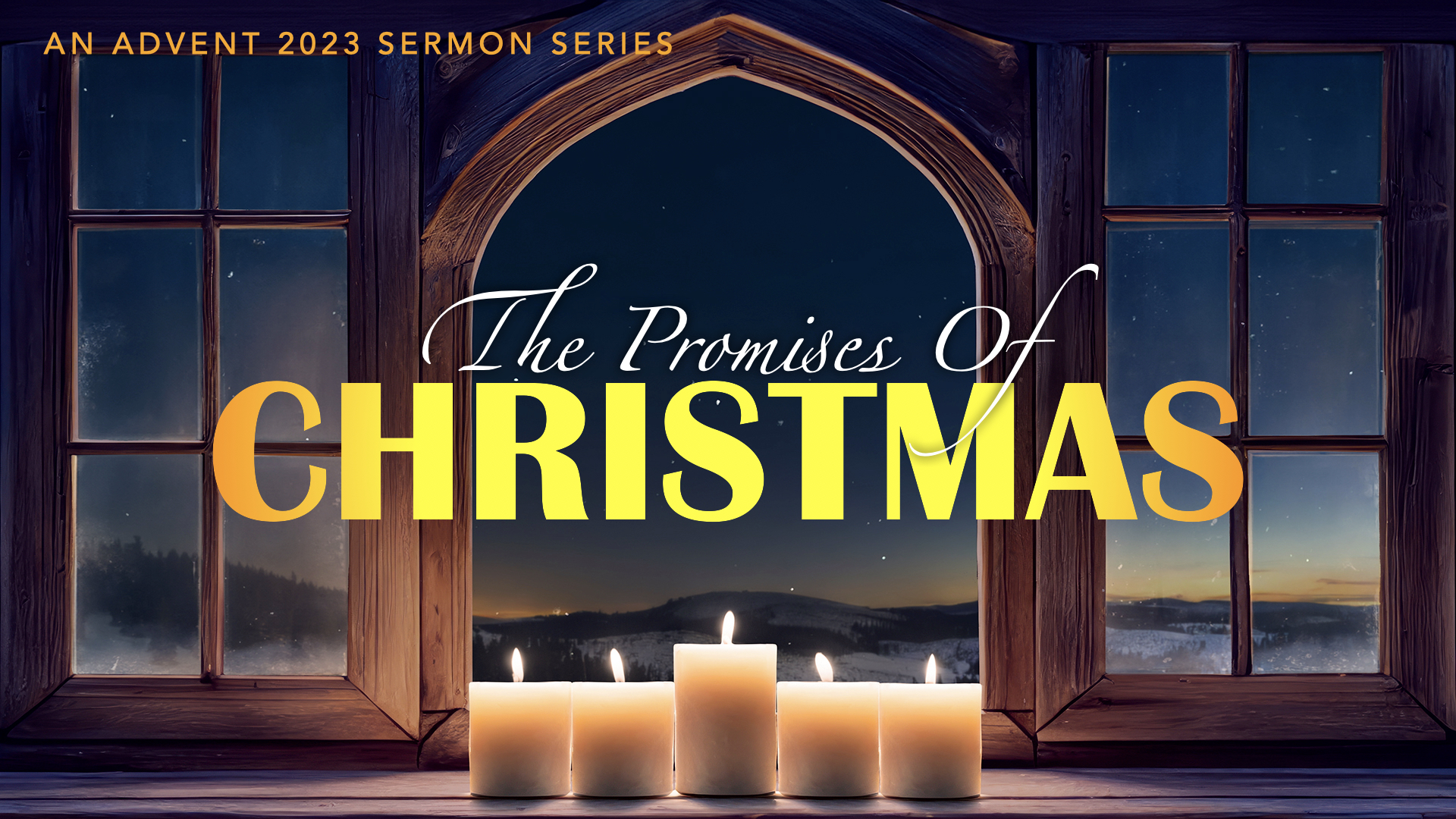
News & Announcements for December 31, 2023

JOIN US FOR SUNDAY SCHOOL
If you’re looking for an opportunity to grow as a disciple of Jesus Christ, we encourage you to join us Sunday mornings for a intergenerational Sunday school class, from 9:00-10:00. We look forward to seeing you! Please note that we will not have Sunday School next Sunday, December 24. Bob Mills will be teaching the following Sunday, December 31.
MIDWEEK PRAYER – WEDNESDAYS @ Noon
Please join us on Wednesdays at noon for a time of prayer in the sanctuary as we bring our needs before our loving God.
8HELPING HANDS OFFERING – THIS MORNING
Each 5th Sunday, any undesignated offerings placed in the collection plates go to Helping Hands, a ministry of churches in the Madison Heights-Elon area of Amherst County to help residents in need. It is administered through Madison Heights Baptist Church. Thank you for helping us meet the needs of those in our community!
WOMEN’S BIBLE STUDY – MONDAY, January 8, 7pm
Join us Monday evening, January 8th at 7pm at Northminster. Liz Boothe will be leading the discussion about Samson and Delilah – Mercy and Restoration, page 31 of Love Stories of the Bible Speak. Don’t forget to complete your workbook pages beginning on page 23. (And if you don’t get your chapter read or your workbook pages completed, come anyway.)
Read more...

News & Announcements for December 24, 2023 Christmas Eve Service

SUNDAY SCHOOL RETURNS NEXT SUNDAY
Sunday School will resume next Sunday, December 31, with Bob Mills teaching. Our study of the Gospel of Mark will resume on Sunday, January 7, 2024. If you’d like to join the class, feel free to drop in any time!
YOUTH GROUP RETURNS IN JANUARY 2023
There will be no youth group tonight or next Sunday, New Year’s Eve. We look forward to seeing you in the New Year!
WEDNESDAY PRAYER – WEDNESDAYS @ Noon
Please join us on Wednesdays at noon for a time of prayer in the sanctuary as we bring our needs before our loving God.
NEW YEAR’S EVE WORSHIP SERVICE – 10:30 a.m.
Welcome the new year with worship and joy as we wrap up 2023 in God’s house, thanking Him for all He has done.
Read more...

News & Announcements for December 24, 2023 Morning Service

JOIN US FOR SUNDAY SCHOOL
If you’re looking for an opportunity to grow as a disciple of Jesus Christ, we encourage you to join us Sunday mornings for a intergenerational Sunday school class, from 9:00-10:00. We look forward to seeing you! Please note that we will not have Sunday School next Sunday, December 24. Bob Mills will be teaching the following Sunday, December 31.
MIDWEEK PRAYER – WEDNESDAYS @ Noon
Please join us on Wednesdays at noon for a time of prayer in the sanctuary as we bring our needs before our loving God.
CHRISTMAS EVE CANDLELIGHT SERVICE – Dec. 24, 7:oo pm
This evening, you are invited to join us for a family-friendly candlelight service celebrating the birth of our Savior, Jesus Christ. This service of song, carol and Scripture provides a wonderful opportunity to get a sense of how eager the Hebrews were for the coming of the Messiah so long ago, and reminds us how eager we are for his return. We look forward to seeing you there!
HELPING HANDS OFFERING – NEXT SUNDAY
Each 5th Sunday, any undesignated offerings placed in the collection plates go to Helping Hands, a ministry of churches in the Madison Heights-Elon area of Amherst County to help residents in need. It is administered through Madison Heights Baptist Church. Thank you for helping us meet the needs of those in our community!
Read more...

News & Announcements for December 17, 2023

NEWS & ANNOUNCEMENTS
JOIN US FOR SUNDAY SCHOOL
If you’re looking for an opportunity to grow as a disciple of Jesus Christ, we encourage you to join us Sunday mornings for a intergenerational Sunday school class, from 9:00-10:00. We look forward to seeing you! Please note that we will not have Sunday School next Sunday, December 24. Bob Mills will be teaching the following Sunday, December 31.
MIDWEEK PRAYER – WEDNESDAYS @ Noon
Please join us on Wednesdays at noon for a time of prayer in the sanctuary as we bring our needs before our loving God.
GLEANING FOR THE WORLD – WEDNESDAY, DEC 20, 8:30 AM
Join us as we head over to the Gleaning For The World warehouse to help them pack towels and stuffed animals. We’ll meet in the church parking lot at 8:30 AM and carpool, returning around 11:30 AM.
CHRISTMAS EVE CANDLELIGHT SERVICE – Dec. 24, 7:oo pm
Next Sunday is the 4th Sunday in Advent and Christmas Eve, In the morning, we will have our normal worship service and light the 4th candle of the advent wreath. That evening, we invite you to join us for a family-friendly candlelight service celebrating the birth of our Savior, Jesus Christ. This service of song, carol and Scripture provides a wonderful opportunity to get a sense of how eager the Hebrews were for the coming of the Messiah so long ago, and reminds us how eager we are for his return. We look forward to seeing you there!
HELPING HANDS OFFERING – NEXT SUNDAY
Each 5th Sunday, any undesignated offerings placed in the collection plates go to Helping Hands, a ministry of churches in the Madison Heights-Elon area of Amherst County to help residents in need. It is administered through Madison Heights Baptist Church. Thank you for helping us meet the needs of those in our community!
Read more...

News & Announcements for December 10, 2023

JOIN US FOR SUNDAY SCHOOL
If you’re looking for an opportunity to grow as a disciple of Jesus Christ, we encourage you to join us Sunday mornings for a intergenerational Sunday school class, from 9:00-10:00. We look forward to seeing you!
MIDWEEK PRAYER – WEDNESDAYS @ Noon
Please join us on Wednesdays at noon for a time of prayer in the sanctuary as we bring our needs before our loving God.
CHRISTMAS POINSETTIAS – DEADLINE IS TODAY!
Today is the deadline to order a Christmas Poinsettia. The sign up sheet and order form are on the bulletin board in the hallway.
WOMEN’S BOOK CLUB – THURSDAY, DEC 14, 11:45AM
In December, the Book Club will be meeting at Depot Grille on Thursday, December 14th at 11:45 a.m. to enjoy lunch together. We will also be talking about the book, A Redbird Christmas by Fannie Flagg. We’ll see you there!
CHRISTMAS CHEER BASKET PACKING – FRIDAY, DEC 15, 9 AM
We’ve been collecting items for the Christmas Cheer Baskets since June, and now it’s time to pack the baskets for delivery! Join us at Amelon UMC on Friday at 9am as we prepare to spread some Christmas Cheer on Saturday. Come see how God has provided for many families in our community!
PICK UP YOUR ADVENT DEVOTIONAL TODAY
NEXT SUNDAY IS THE NORTHMINSTER CHRISTMAS EXTRAVAGANZA!
See the picture above for more details, or go to our Advent page on the website.
Read more...

December 2023 Pastor’s Corner — A Season of Promise

“Behold, the days are coming, declares the LORD, when I will fulfill the promise I made to the house of Israel and the house of Judah. In those days and at that time I will cause a righteous Branch to spring up for David, and he shall execute justice and righteousness in the land. In those days Judah will be saved, and Jerusalem will dwell securely. And this is the name by which it will be called: ‘The LORD is our righteousness.’” — Jeremiah 33:14-16
Advent is one of the most popular seasons in the church calendar, it’s certainly one of mine. Of course, culturally its popular because it means Christmas is coming and most of us look at Advent as a time to prepare for the celebration of that holiday. But there is a depth and richness to Advent, an irony even, that runs much deeper than merely getting ready for Christmas. “Advent” is a Latin word that means “coming” or “arrival.” Yes, it is a season of preparing to celebrate Christ’s first coming 2,000 years ago, but even more it is a season of preparation for Christ’s return. This dual focus makes Advent a season of promise — promise fulfilled and promise yet to come.
As foretold in Jeremiah (and Isaiah and the other prophets), the incarnation of Jesus Christ was the fulfillment of God’s promises to redeem His people from sin and exile and restore His Kingdom on earth in a fuller and more beautiful way than ever before. As the New Testament makes clear, every one of God’s promises about the Messiah were fulfilled in Jesus Christ. Every single one. We can spend our entire lives contemplating the wonder of God’s promises fulfilled in the incarnation of Christ and find there’s always more depths to explore, which is why Advent is necessary to help us prepare to celebrate the birth of our Savior.
What no one expected, though, was that the birth, life, and death of Jesus Christ was just the beginning, the inauguration, of that work. The completion and consummation of that work is yet to come, which is why we use this season to prepare for the glorious return of our Savior. As certainly as He came the first time, He will surely come again. The guarantee of His return is that He has already come, let alone how many times He said He would return (Matthew 16:27; Luke 12:40; John 14:3; Acts 1:11; Revelation 22:20, to list just a few). A full and complete celebration of Advent and Christmas not only looks back, but also looks ahead, anticipating the joyous return of our Savior and the consummation of the Kingdom of God.
Advent is the season that shines brightly the hope, love, joy and peace of Jesus Christ in the darkness of this world. The irony of Advent is this: as cold of winter sets in and the leaves fall and flowers die, as the dark of winter grows longer each day, Advent reminds us that death has been defeated (1 Corinthians 15: 54-57) and the Light of Jesus Christ continues to shine forth and can not be overcome (John 1:1-14). God will be faithful, and the promise of this season will bear fruit. So this Advent, hold fast your hope. Love, because He first loved us. Rejoice in your salvation now and your salvation yet to come. Rest, knowing that God has brought you peace, even in the midst of your enemies.
Let us draw near with a true heart in full assurance of faith, with our hearts sprinkled clean from an evil conscience and our bodies washed with pure water. Let us hold fast the confession of our hope without wavering, for he who promised is faithful. And let us consider how to stir up one another to love and good works, not neglecting to meet together, as is the habit of some, but encouraging one another, and all the more as you see the Day drawing near. — Hebrews 10:22-25
Blessings,
Rev. David Garrison
Read more...

News & Announcements for December 3, 2023

JOIN US FOR SUNDAY SCHOOL
If you’re looking for an opportunity to grow as a disciple of Jesus Christ, we encourage you to join us Sunday mornings for a intergenerational Sunday school class, from 9:00-10:00. We look forward to seeing you!
MIDWEEK PRAYER – WEDNESDAYS @ Noon
Please join us on Wednesdays at noon for a time of prayer in the sanctuary as we bring our needs before our loving God.
CHRISTMAS POINSETTIAS – ORDER YOURS TODAY!
It’s time to order poinsettias to help decorate our sanctuary for the Advent-Christmas season. You are welcome to donate one in memory and in honor of loved ones. To place an order, please sign your name on the bulletin board outside the sanctuary and fill out the form provided for payment. They are $6.00 each and the deadline is Sunday, Dec. 10. Please contact Liz Boothe if you have questions.
WOMEN’S BIBLE STUDY – MONDAY, DEC 4, 10AM
Join us Monday morning, December 4th at 10.00 a.m. at Northminster. Anne Wilkins will be leading the discussion about Joseph and Mary – A Bond of Trust, page 75 of Love Stories of the Bible Speak. Don’t forget to complete your workbook pages beginning on page 45. (And if you don’t get your chapter read or your workbook pages completed, come anyway.) Please notice that we are changing the time from 7:00 p.m. to 10:00 a.m.
MISSION FOCUS FOR THE MONTH OF DECEMBER
Our focus for the month of December is Christmas Cheer Baskets. Peanut butter, canned meats, canned fruits, soups, jelly or jam, mac and cheese, pasta, pancake mix, syrup, and spaghetti sauce are great items to donate. When buying something for yourself, consider getting two and bringing one for this worthy mission. Donations can be placed in the receptacle in the narthex until Sunday, December 10. Thank you for your support!
THE DECEMBER NEWSLETTER IS NOW AVAILABLE
The December newsletter is now available. You can pick up a printed copy in the narthex or download it here..
PICK UP YOUR ADVENT DEVOTIONAL TODAY
To help deepen your spiritual journey this season, we invite you to pick up an Advent Devotional in the Narthex, or download it here..
Read more...

News & Announcements for November 26, 2023

JOIN US FOR SUNDAY SCHOOL
If you’re looking for an opportunity to grow as a disciple of Jesus Christ, we encourage you to join us Sunday mornings for a intergenerational Sunday school class, from 9:00-10:00. We look forward to seeing you!
MIDWEEK PRAYER – WEDNESDAYS @ Noon
Please join us on Wednesdays at noon for a time of prayer in the sanctuary as we bring our needs before our loving God.
CHRISTMAS POINSETTIAS – ORDER YOURS TODAY!
It’s time to order poinsettias to help decorate our sanctuary for the Advent-Christmas season. You are welcome to donate one in memory and in honor of loved ones. To place an order, please sign your name on the bulletin board outside the sanctuary and fill out the form provided for payment. They are $6.00 each and the deadline is Sunday, Dec. 10. Please contact Liz Boothe if you have questions. See the November newsletter for an article explaining why poinsettias are so important to the Christmas season.
HANGING OF THE GREENS – SATURDAY, DEC 2, 9AM-Noon
You are invited to join us on Saturday, December 2 from 9-noon as we prepare our church to celebrate the birth of our Savior. We will gather together to decorate beautiful trees with Chrismons, set up Advent candles, wreaths, and banners as we enjoy light brunch refreshments, Christmas music playing in the background, and above all, each other’s company.
MISSION FOCUS FOR THE MONTH OF NOVEMBER
Our focus for the month of November is Christmas Cheer Baskets. Peanut butter, canned meats, canned fruits, soups, and jelly or jam are always a good idea. Since we are closer to the delivery date, mid-December, we can now add packaged foods such as mac and cheese, pasta, and pancake mix. Of course, spaghetti sauce and syrup are welcome too! When buying something for yourself, consider getting two and bringing one for this worthy mission. Donations can be placed in the receptacle in the narthex. Thank you for your support!
Read more...

News & Announcements for November 19, 2023

JOIN US FOR SUNDAY SCHOOL
If you’re looking for an opportunity to grow as a disciple of Jesus Christ, we encourage you to join us Sunday mornings for a intergenerational Sunday school class, from 9:00-10:00. We look forward to seeing you!
MIDWEEK PRAYER – WEDNESDAYS @ Noon
Please join us on Wednesdays at noon for a time of prayer in the sanctuary as we bring our needs before our loving God.
CHRISTMAS POINSETTIAS – ORDER YOURS TODAY!
It’s time to order poinsettias to help decorate our sanctuary for the Advent-Christmas season. You are welcome to donate one in memory and in honor of loved ones. To place an order, please sign your name on the bulletin board outside the sanctuary and fill out the form provided for payment. They are $6.00 each and the deadline is Sunday, Dec. 10. Please contact Liz Boothe if you have questions. See the November newsletter for an article explaining why poinsettias are so important to the Christmas season.
HANGING OF THE GREENS – SATURDAY, DEC 2, 9AM-Noon
You are invited to join us on Saturday, December 2 from 9-noon as we prepare our church to celebrate the birth of our Savior. We will gather together to decorate beautiful trees with Chrismons, set up Advent candles, wreaths, and banners as we enjoy light brunch refreshments, Christmas music playing in the background, and above all, each other’s company.
MISSION FOCUS FOR THE MONTH OF NOVEMBER
Our focus for the month of November is Christmas Cheer Baskets. Peanut butter, canned meats, canned fruits, soups, and jelly or jam are always a good idea. Since we are closer to the delivery date, mid-December, we can now add packaged foods such as mac and cheese, pasta, and pancake mix. Of course, spaghetti sauce and syrup are welcome too! When buying something for yourself, consider getting two and bringing one for this worthy mission. Donations can be placed in the receptacle in the narthex. Thank you for your support!
Read more...

News & Announcements for November 12, 2023

JOIN US FOR SUNDAY SCHOOL
If you’re looking for an opportunity to grow as a disciple of Jesus Christ, we encourage you to join us Sunday mornings for a intergenerational Sunday school class, from 9:00-10:00. We look forward to seeing you!
MIDWEEK PRAYER – WEDNESDAYS @ Noon
Please join us on Wednesdays at noon for a time of prayer in the sanctuary as we bring our needs before our loving God.
GLEANING FOR THE WORLD – WEDNESDAY, 8:30AM
Please join us in the parking lot of the church for carpooling. We will return to the church around 11:30 am.
CHRISTMAS POINSETTIAS – ORDER YOURS TODAY!
It’s time to order poinsettias to help decorate our sanctuary for the Advent-Christmas season. You are welcome to donate one in memory and in honor of loved ones. To place an order, please sign your name on the bulletin board outside the sanctuary and fill out the form provided for payment. They are $6.00 each and the deadline is Sunday, Dec. 10. Please contact Liz Boothe if you have questions. See the November newsletter for an article explaining why poinsettias are so important to the Christmas season.
HANGING OF THE GREENS – SATURDAY, DEC 2, 9AM-Noon
You are invited to join us on Saturday, December 2 from 9-noon as we prepare our church to celebrate the birth of our Savior. We will gather together to decorate beautiful trees with Chrismons, set up Advent candles, wreaths, and banners as we enjoy light brunch refreshments, Christmas music playing in the background, and above all, each other’s company.
MISSION FOCUS FOR THE MONTH OF NOVEMBER
Our focus for the month of November is Christmas Cheer Baskets. Peanut butter, canned meats, canned fruits, soups, and jelly or jam are always a good idea. Since we are closer to the delivery date, mid-December, we can now add packaged foods such as mac and cheese, pasta, and pancake mix. Of course, spaghetti sauce and syrup are welcome too! When buying something for yourself, consider getting two and bringing one for this worthy mission. Donations can be placed in the receptacle in the narthex. Thank you for your support!
Read more...
